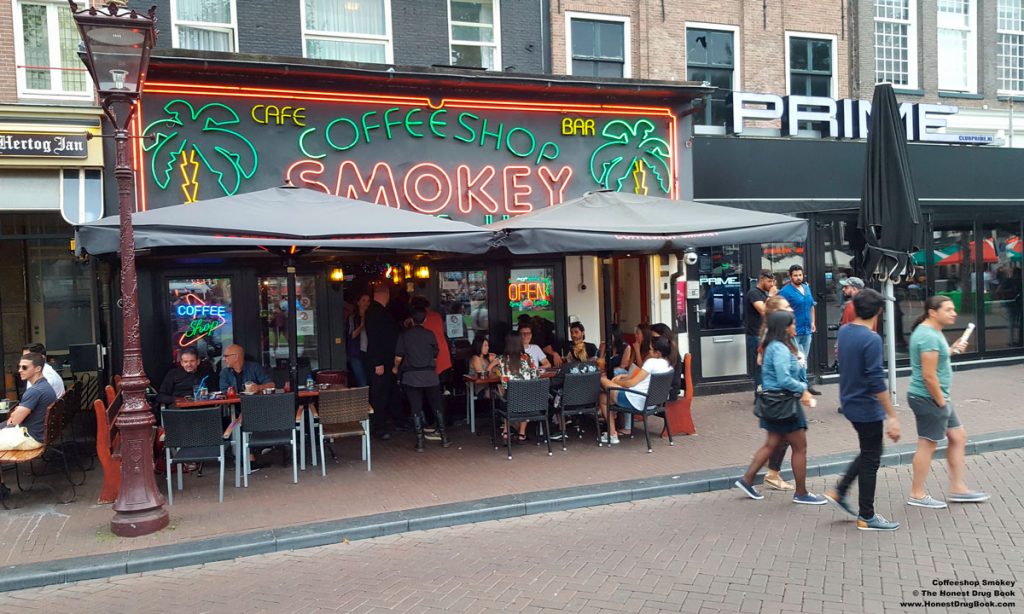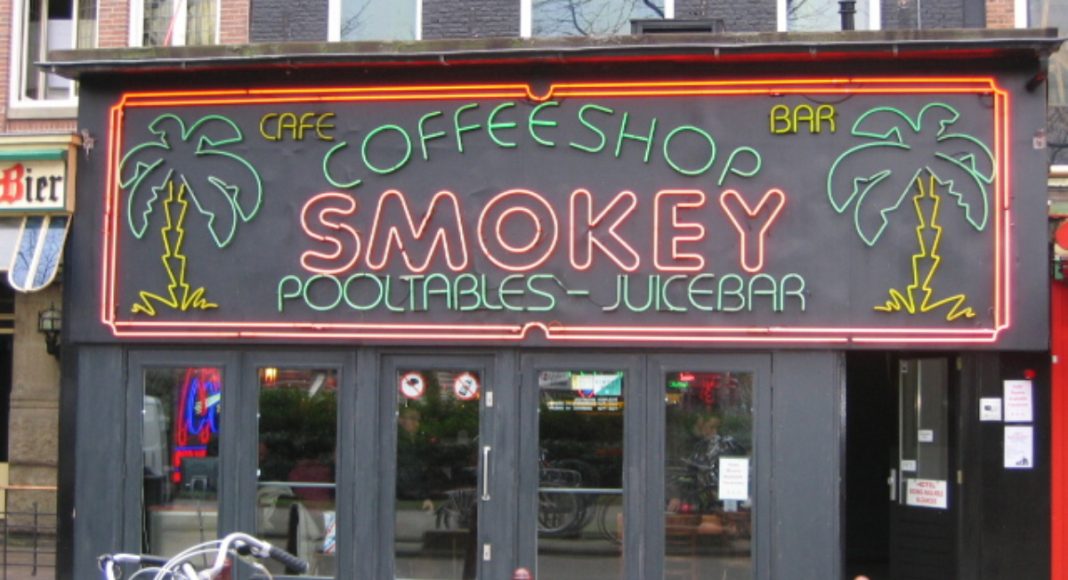Amsterdam is known for its renowned canals, unique architecture, cannabis coffee shops, and the red-light district. Overall, it’s more of a liberal city than people may think.
For several decades, Amsterdam has been a widely-visited Dutch city that’s been at the forefront of successful cannabis coffee shops. Although these coffee shops have similarities to American cannabis dispensaries, there are some aspects that could be incorporated into the U.S. cannabis model. Here’s how.
Background Of Amsterdam’s Cannabis Coffee Shops
Although different U.S. states have implemented their own cannabis programs over the years, the U.S. federal government classifies cannabis as a Schedule I illegal substance. Whereas, in Holland, cannabis legislation is set up very differently. Their classification of cannabis is somewhat similar. However, Holland’s legalization approach went into a different direction. In particular, Dutch law can be quite practical, which is different than that of many other countries.
RELATED: The Netherlands Bans Some Public Marijuana Consumption
In the early 1970s, Dutch lawmakers realized that a drug-free society would turn out to be a complete utopia or dreamland. Therefore, the country’s government decided to develop the “Tolerance Policy” with the intention of attempting to overcome the negative affect that prohibition would have on Dutch society. From this point, the sale and consumption of cannabis within the grounds of licensed coffee shops and cafes turned into a reality.
In the Netherlands, the transaction of small quantities of cannabis are allowed, whereas, the mass production of cannabis continues to be forbidden in addition to punishable by the full extent of Dutch law. Overall, though, the Netherlands is known as one of the few destinations in the westernized world in which cannabis consumption has been decriminalized.
Amsterdam — Cannabis Capital Of The World
Moreover, Amsterdam’s first coffee shops opened in 1975, which made them a symbol of cannabis culture. This Dutch city is also the home of the first High Times cannabis cup. In addition, Amsterdam has become a center/hub for cannabis enthusiasts to visit at least once during their life. For those who wish to experience Amsterdam’s historic cannabis coffee shops and cafes and the well-known cannabis scene, there’s opportunities to do so without fearing of getting arrested or paying steep fines.
In Amsterdam, cannabis consumers can sample different world-class strains in addition to experiencing guided expeditions throughout the country’s cannabis production process from the beginning stages of growing to harvesting.
Dutch Cannabis Tourism Vs. U.S. Cannabis Tourism
Currently, the American cannabis-oriented tourist hub is still far away from the successful Dutch model. It’s unlikely that the U.S. would make changes to their cannabis tourism industry that’d replace Amsterdam as the world’s cannabis hub. This is the case because of one primary reason, which is that the Dutch were there first, and they stamped their cannabis presence into the ground long before other countries did.
In your opinion, what makes tourism so intriguing? For one, tourism is all about traveling to new locations that are different from what one’s home has to offer. Travelers can also experience a different culture and people, new ways of life, and places they’ve never been before. For as long as Amsterdam’s cannabis tourism industry existed, it has thrived. However, once cannabis legalization grows to become an even larger worldwide marvel, the uniqueness of international cannabis tourism could lessen. In other words, why would people travel overseas to purchase and experience something that they could find near their home?
RELATED: Brexit Fallout: British Nationals Banned From Amsterdam’s Cannabis Coffee Shops
In the future, cannabis tourism will most likely shift to mostly domestic rather than international traveling, but this won’t happen tomorrow. Cannabis legalization efforts are growing in other countries, but the pace is slow and steady.

Differences Between Amsterdam Coffee Shops & U.S. Cannabis Dispensaries
Although Amsterdam coffee shops and U.S. dispensaries both sell goods to consumers, the settings of these two locales are quite different. For example, customers can expect to receive cannabis menus from bartenders at Amsterdam coffee shops alongside a lingering aroma of different cannabis strains being lit up. Whereas, in dispensaries, customers are greeted by budtenders, who are normally behind a counter, and they’re presented with a cannabis menu too.
RELATED: Are Coffee And Cannabis Compatible? Here Comes The Science
However, one key difference between Amsterdam’s coffee shops and cannabis dispensaries consists of the consumer experience they provide. At coffee shops, individuals undergo a combined consumer experience with kind intentions and assistance from the purchasing stage to the munchies stage. While, dispensaries focus on helping customers get the cannabis products they’re looking for, and then, they send them on their way.
Also, the aromas of Amsterdam coffee shops and cannabis dispensaries are dissimilar mostly because consumers can light up in Dutch coffee shops, which isn’t allowed in U.S. dispensaries.
Trending On-Site Cannabis Consumption
Overall, Dutch legislation regarding cannabis consumption is relatively flexible. This is mostly the case because the law’s intention is to regulate people who are allowed to sell cannabis rather than where consumers are allowed to light up. This turned into the beginning of many smoke-friendly bars that have opened near several established coffee shops.
Although tobacco can be openly consumed in many public places, this has spread to cannabis consumption in Holland as well. In the U.S., some California dispensaries have attained a legal on-site cannabis consumption permit in Los Angeles and San Francisco. Then, in Canada, there has been an increase in BYOC (bring your own cannabis) in their vapor-lounge scene, which continues to grow. Although there are few public places in which individuals can openly consume cannabis in the U.S. and Canada, this is slowly changing.
All in all, U.S. cannabis dispensaries and America’s cannabis tourism industry can learn a lot from the Dutch cannabis model. In the future, Amsterdam’s cannabis industry will continue to be known as well-developed and established, and due to its historic background, it’s likely that people will still travel there even when cannabis legalization efforts evolve further in North America.


